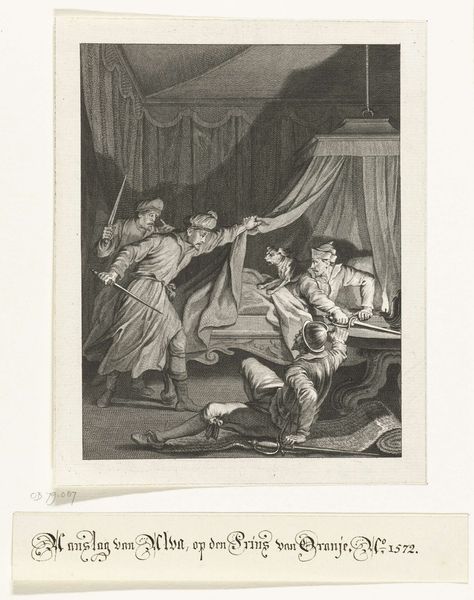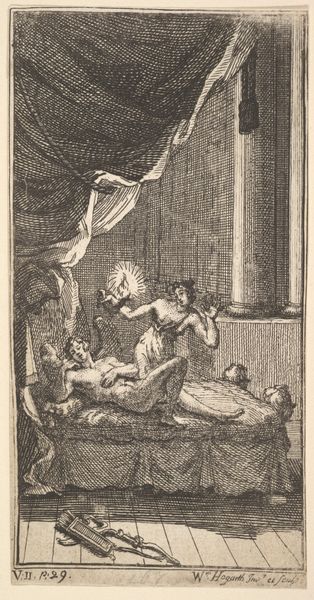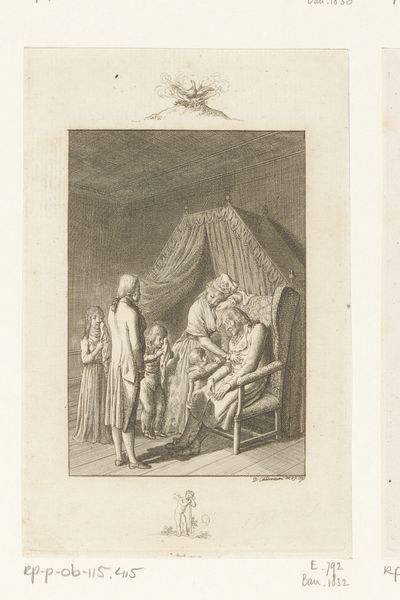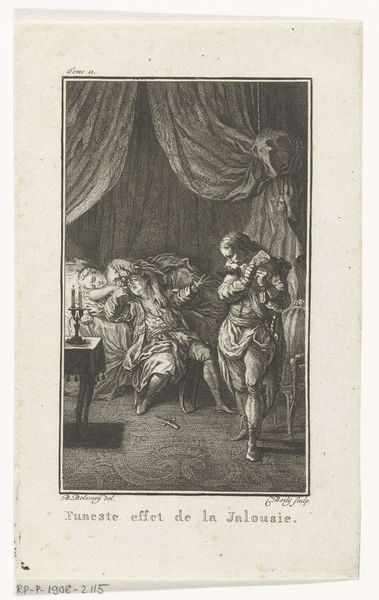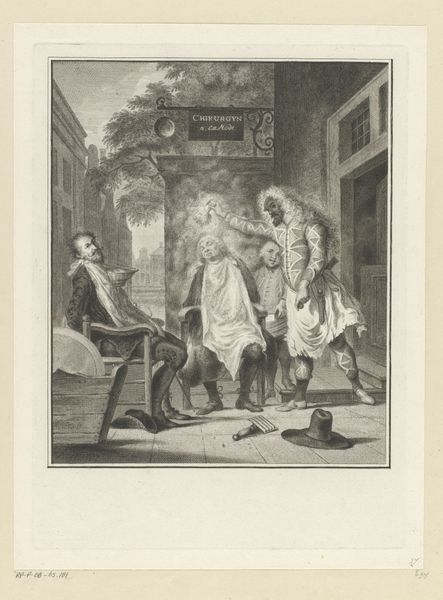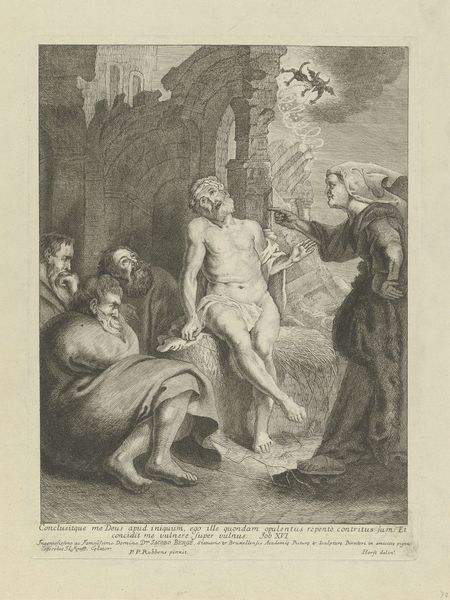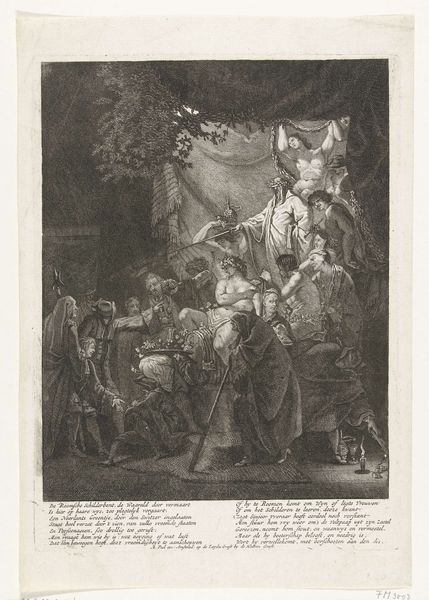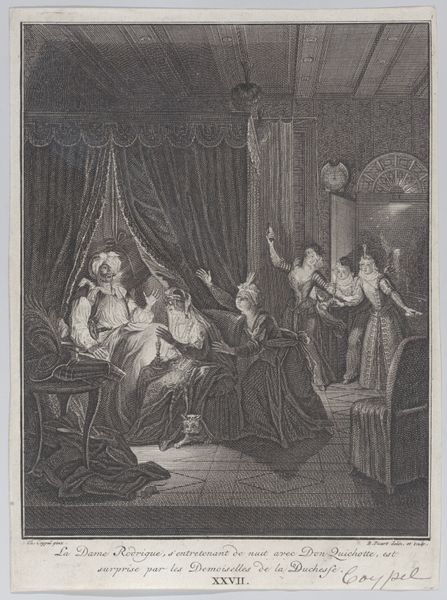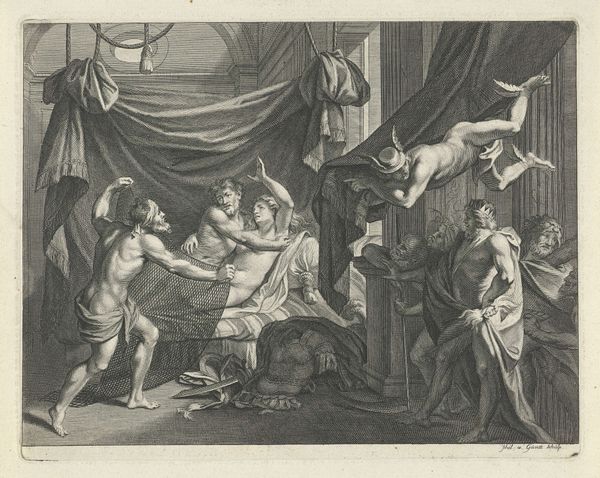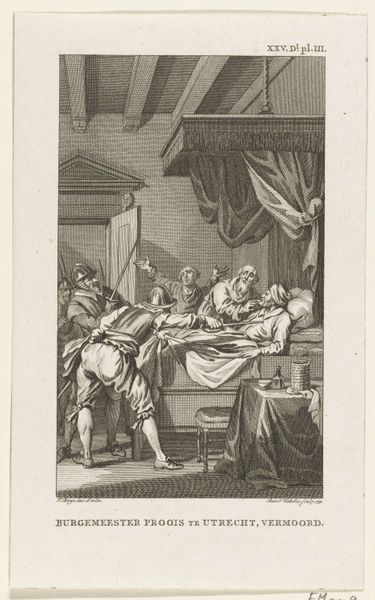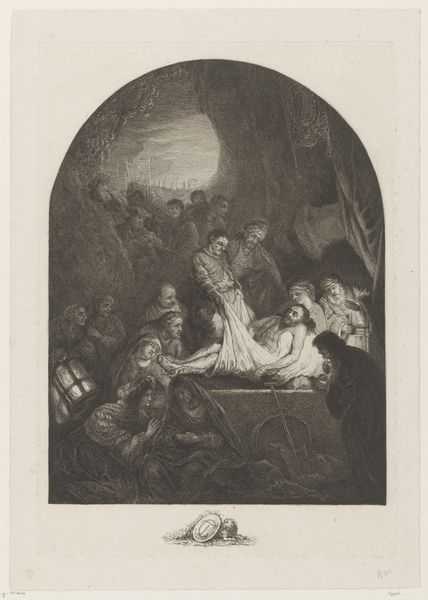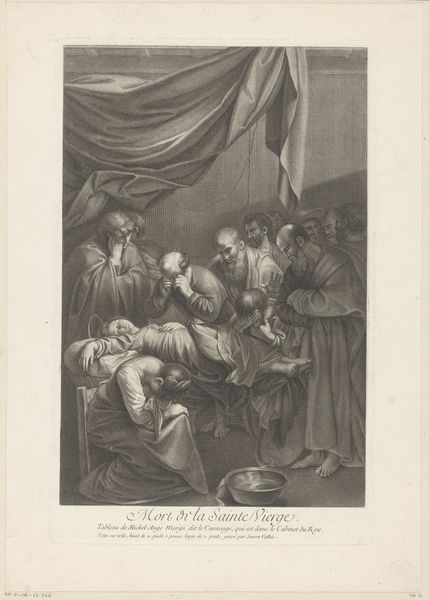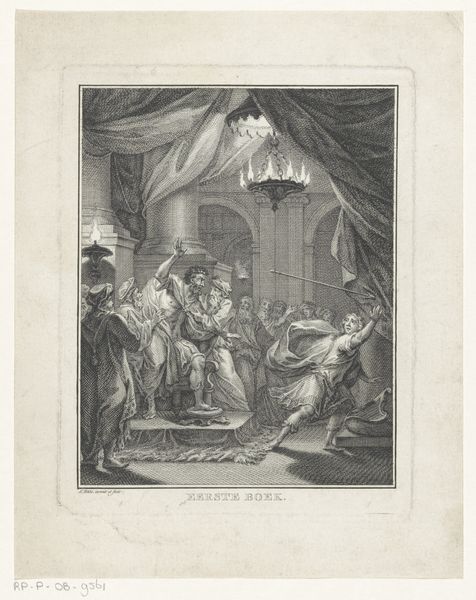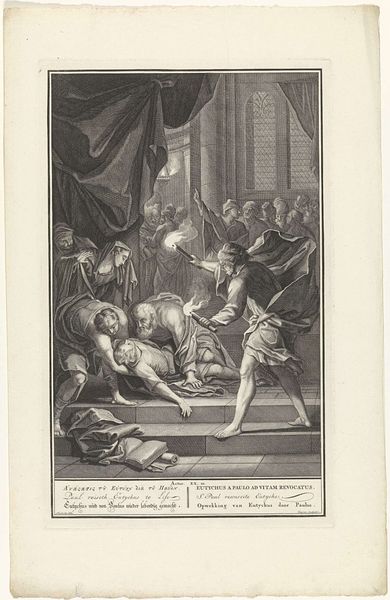
engraving
#
narrative-art
#
baroque
#
old engraving style
#
figuration
#
history-painting
#
engraving
Dimensions: height 152 mm, width 135 mm
Copyright: Rijks Museum: Open Domain
Jan de Lairesse created this print, "Slapende man opgeschrikt door allegorische figuren," sometime between 1673 and 1716. The scene depicts allegorical figures startling a sleeping man, likely conveying a moral or philosophical message. Made in the Netherlands, this work is of the late Golden Age, a period of immense economic and cultural growth. During this time, Dutch art often served a didactic purpose, reflecting the values of a mercantile society and the influence of Calvinist morality. The presence of allegorical figures suggests an interest in classical themes, a common feature in Dutch art of the period as artists looked to legitimize their work by emulating the classical tradition. To fully understand this piece, one could research the popular moral themes of the time, as well as the influence of classical allegory on Dutch art and the role of the artist in conveying ethical values. The meaning of art is always rooted in the social and institutional contexts in which it is made.
Comments
No comments
Be the first to comment and join the conversation on the ultimate creative platform.
